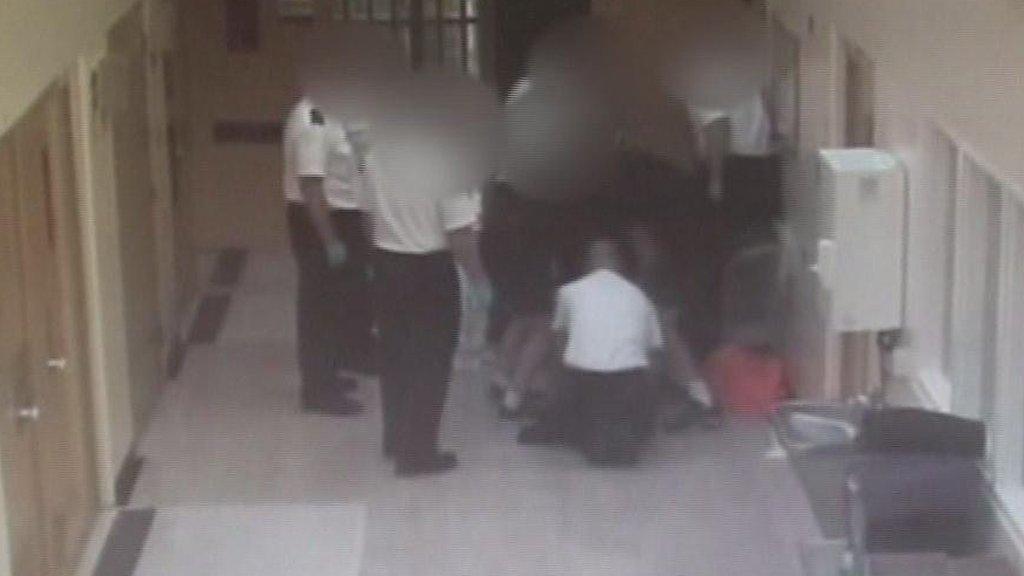Scottish Prison Service faces prosecution for corporate homicide
- Published
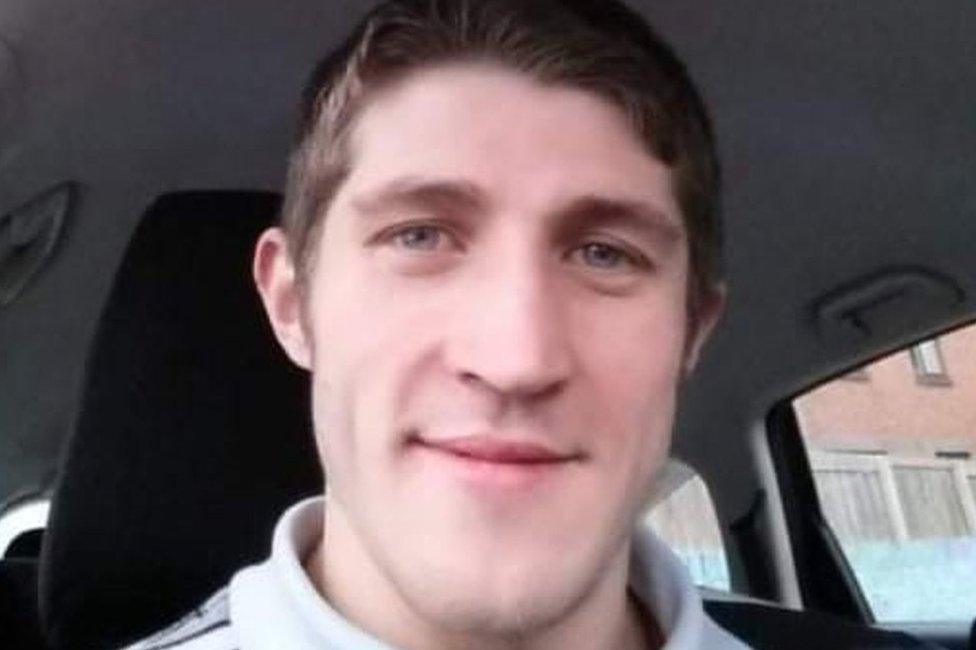
Allan Marshall had been on remand at HMP Edinburgh
Police have been told to investigate whether the Scottish Prison Service should be prosecuted over the death of a remand prisoner, the BBC can reveal.
Allan Marshall died after being restrained face down by 13 prison officers at HMP Edinburgh in 2015.
The officers were given immunity from prosecution when they gave evidence at a fatal accident inquiry.
Now the lord advocate has instructed police to examine whether the prison service has corporate responsibility.
Dorothy Bain KC has also told the family she cannot prosecute the officers for perjury because their immunity is so far-reaching.
If the prison service is prosecuted for corporate homicide, which is the equivalent of manslaughter in England and Wales, it will be the first time this action has been taken over a death in custody.
Allan's older brother, Alistair Marshall, has spoken about the case for the first time in an interview with BBC Scotland.
He welcomed the lord advocate's actions, but said he was angry about how long it had taken.
Allan Marshall, from South Lanarkshire, was 30 when he died in March 2015.
He had been placed on remand for 30 days before his next court date, for unpaid fines and breach of the peace charges.
He had only five days left in prison when the incident took place.
Allan was transferred to the jail's segregation unit on 24 March after officers said he had become agitated.
He was then put in the shower and it is unclear exactly what happened next, but CCTV footage shows him being dragged into a corridor and restrained face down by 13 prison officers. He died four days later.
CCTV shows Allan Marshall being restrained by guards at HMP Edinburgh
The sheriff who held a fatal accident inquiry into what happened said the death had been "entirely preventable" and that the prison officers were "mutually dishonest".
At the time of that inquiry, the officers involved in restraining Mr Marshall were given immunity from prosecution.
After its findings were published in 2019, Mr Marshall's family called for action to be taken against the officers.
A year ago, the lord advocate met Allan's brother and aunt and promised to review the case and re-interview all the witnesses.
Ms Bain met them again on Friday to update them on progress.
The family said the lord advocate, who is head of Scotland's prosecution service, had apologised for the way they had been treated and for the officers being granted immunity.
Ms Bain told the family she could not prosecute the individual officers - but has instructed an investigation into the Scottish Prison Service on the grounds of corporate responsibility, including corporate homicide.
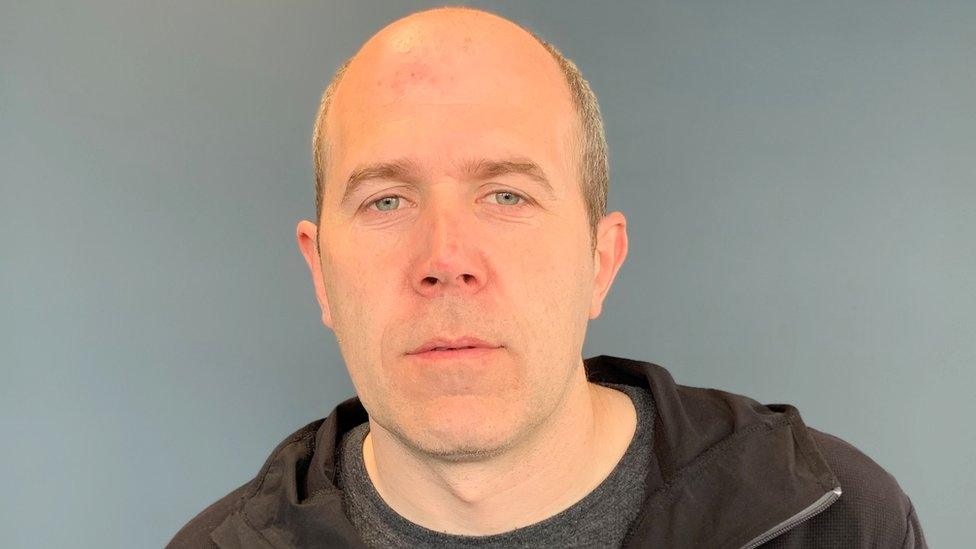
Allan's older brother, Alistair Marshall, has spoken out about the case for the first time
Alistair Marshall said he was relieved the prosecution service was looking to hold the prison service to account - but was angry it had taken so long to get to this point.
"People should have done their jobs right from the start," he said.
Alistair remembers his younger brother as "mischievous, adventurous and energetic".
He said Allan did an apprenticeship in construction, then worked in his dad's garage before setting up his own business recycling electronics.
Every year the two brothers took part in the Pedal For Scotland sponsored bike ride from Glasgow to Edinburgh to raise money for MS. Their mother had the condition.
"He loved going camping," he said.
"He always wanted to have a life of fun and always brought people together - all the cousins, the brothers and other friends. It is not the same now Allan's not here."
Allan's aunt, Sharon MacFadyen, told the BBC she was "grateful" to the lord advocate for reviewing the case
Alistair said he wanted the prison service to be held accountable for killing his brother.
He said Allan's body had been so badly decomposed when the police returned it to the family that the undertaker phoned up in tears.
"They never even took care of his body even when he was dead," said Alistair.
Allan's aunt, Sharon MacFadyen, said she was "grateful" to the lord advocate for reviewing the case and "hopeful" that the new police investigation would lead to a prosecution.
She told the BBC: "He only had five days to go [on remand] when this happened. It is unbelievable.
"To me they've been given a licence to kill. They think they are above the law - and the powers that be just cover up for them.
"I don't want this to happen to anyone else.
"He has got a son and daughter and they don't even know their dad."

Dorothy Bain is the head of Scotland's prosecution service
Ms Bain KC said she had been grateful for the opportunity to meet Mr Marshall's family and update them on the inquiries which she had ordered.
"I have the utmost respect for their desire to have answers for their questions about Allan's death," said the lord advocate.
"I accept that some aspects of the initial case work fell short of what they were entitled to expect.
"Since Allan's death, the way in which custody death cases are handled by the procurator fiscal has been reviewed and transformed.
"I am confident that new structures and processes in place will ensure that all death in custody cases are undertaken rigorously, respectfully and compassionately."
A spokesperson for the Crown Office and Procurator Fiscal Service said the decision not to prosecute individual prison officers could not be reversed.
"The lord advocate has instructed that Police Scotland should investigate possible corporate responsibility by the Scottish Prison Service."
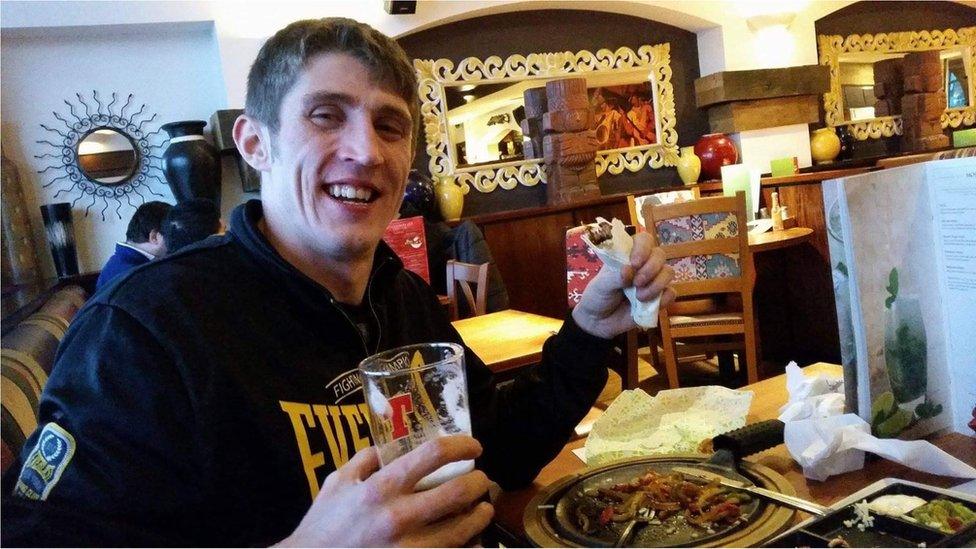
Allan Marshall was described as adventurous and energetic
Lindsay Farmer, a professor of law at Glasgow University, said the Crown was in effect using corporate homicide legislation as a "backstop" to prosecute the organisation, partly because there was no route to prosecute the individuals.
He described the move as "a novel development".
The Scottish Prison Service said: "Our thoughts remain with Mr Marshall's family. We will fully co-operate with any investigation undertaken by Police Scotland."
A Police Scotland spokesperson said: "We have received instruction from the lord advocate to investigate possible corporate responsibility by the Scottish Prison Service.
"We are not able to comment further at this time due to the live nature of this investigation."
Related topics
- Published6 September 2019
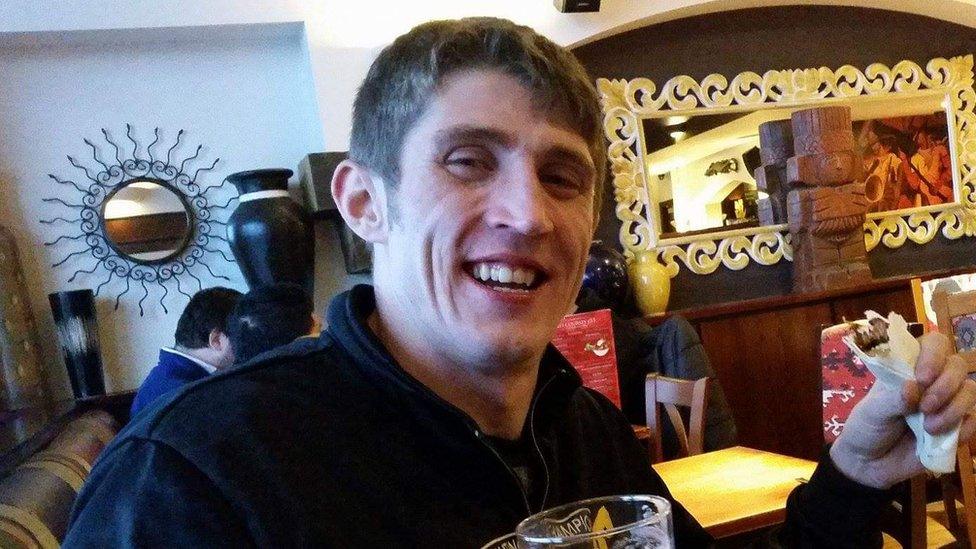
- Published19 August 2019
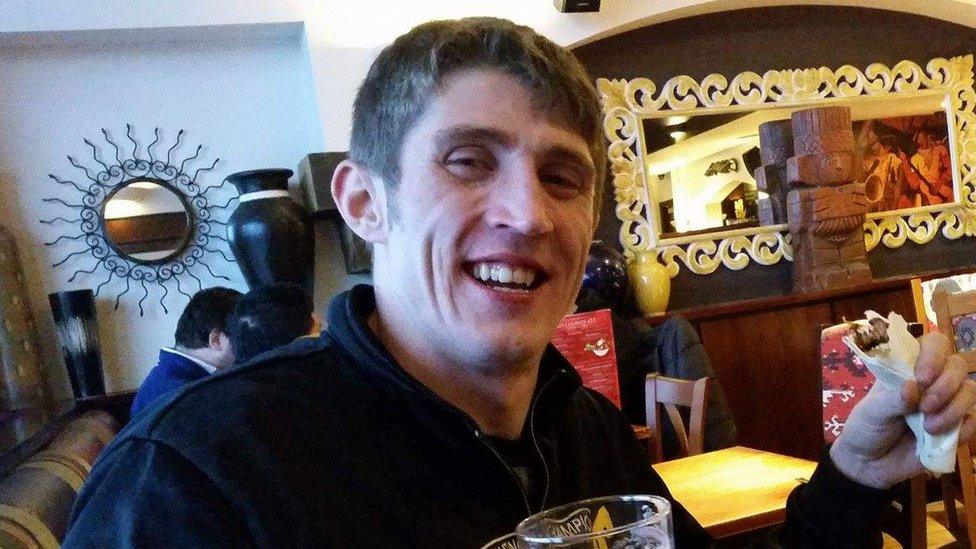
- Published5 September 2019

- Published5 September 2019
